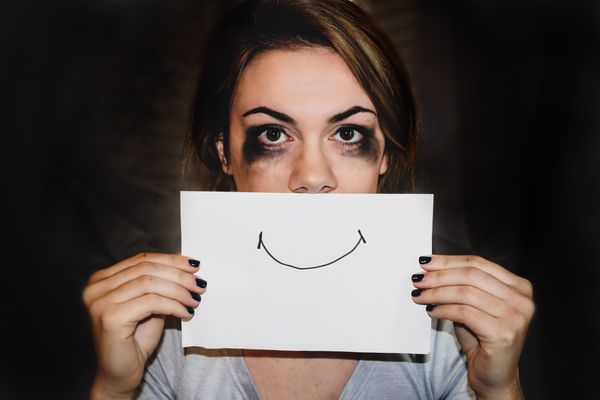I am a junior in college studying Psychology because I am interested in how the mind works and how people think and why they do the things they do. What I eventually plan to do with my degree is to counsel people who suffer from PTSD.
The main reason I am writing this article is because when I tell people they don't know what PTSD is, it is because they usually assume I am going to be counseling war veterans, and that is not the case.
Many people think you can only get Post-traumatic stress disorder from being in war, but that is not true. It can happen with any traumatic event. As you read through this article, I hope it helps you educate yourself, and if you have it, to get the help you need and deserve.
PTSD is a mental health problem that stands for Post-Traumatic Stress Disorder. The National Center for PTSD states that it can be developed after, “experiencing or witnessing a life-threatening event, like combat, a natural disaster, a car accident, or sexual assault.”
Everyone handles trauma differently. It’s normal to be upset or on edge and have bad memories of an incident. It’s also normal not to want to go about your normal day-to-day activities, but if it’s been more than a few months and you’re still feeling this way, you may have PTSD.
It’s also normal not to have any symptoms right away. Some people don’t experience symptoms until months after the trauma.
The National Center for PTSD says that If you feel you are experiencing Post-traumatic stress disorder, here are some questions to answer to help you find out:
- How intense was the trauma, and how long did it last?
- Were you injured or lost someone important to you?
- How close were you to the event?
- How strong was your reaction?
- How much did you feel you were in control of the events?
- How much help and support did you receive after the event?
There are four symptoms of PTSD.
The first one is reliving the event, or having flashbacks. This could be in nightmares, bad memories or feeling like you’re going through the event all over again.
The second symptom is avoiding situations that remind you of the event. This could mean you avoid people who were with you during the event or anything that reminds you of it. Also, not even talking about it is avoiding it.
The third is the negative changes in your feelings and beliefs. This could mean the way you think about yourself or others is negative, and activities you used to be interested in and like you no longer can do because you don’t like them anymore.
The last symptom is being keyed up, also called hyperarousal. This can be that you’re always on alert and jittery. You may have trouble concentrating or sleeping.
Other problems people have experienced involve feelings of hopelessness, shame or despair, depression or anxiety, drinking or drug problems. People have also experienced physical symptoms or chronic pain, employment problems and relationship problems like divorce.
There are two types of treatments for post-traumatic stress disorder and they are counseling and medication.
The most effective counseling methods involve cognitive behavioral therapy. Under cognitive behavioral therapy, there are two kinds of therapies. One is called cognitive processing therapy, which The National Center for PTSD states can "help you learn skills to understand how trauma changed your thoughts and feelings.” The other is prolonged exposure therapy, which is when “you talk about your trauma repeatedly until memories are no longer upsetting. You also go to places that are safe, but that you have been staying away from because they are related to the trauma.”
The other therapy is Eye Movement Desensitization and Reprocessing and helps you focus on sounds or hand movements while talking about the trauma.
Medications called selective serotonin reuptake inhibitors treat depression and are also effective in treating PTSD.
I plan on getting my masters in counseling and with that go into hospitals and try and help patients that suffer from PTSD because everyone deserves to live their own life to the fullest and not be afraid of the world because they experienced a traumatic incident.





















